
Congratulations to HOWS postdoc, Matt Johns who has had his paper entitled “Knowledge Based Multi Objective Genetic Algorithms for the Design of Water Distribution Networks” accepted to the Journal of Hydroinformatics.
VHOST is deprecated. Use the boolean constant SUBDOMAIN_INSTALL in wp-config.php to enable a subdomain configuration. Use is_subdomain_install() to check whether a subdomain configuration is enabled. in /var/www/html/wp-includes/functions.php on line 5497

Congratulations to HOWS postdoc, Matt Johns who has had his paper entitled “Knowledge Based Multi Objective Genetic Algorithms for the Design of Water Distribution Networks” accepted to the Journal of Hydroinformatics.
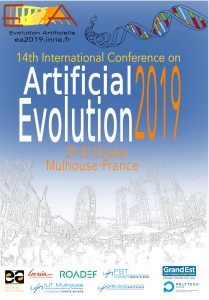
Research from the HOWS project was presented as part of a keynote talk delivered by Professor Ed Keedwell at the 14th International Conference on Artificial Evolution 2019 in Mulhouse, France. The talk focused on the development of heuristics and interactive evolution work from the HOWS project in addition to work on hyperheuristics.
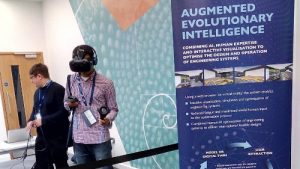
This September researchers from the HOWS team showcased the Augmented Evolutionary Intelligence (AEI) system at the 17th International Computing & Control for the Water Industry Conference hosted by the University of Exeter. Delegates got to try their hand at optimising water distribution networks using the new virtual reality based AEI system which employs cutting edge visualisation, machine learning and evolutionary computation to harness the power of human intuition to solve engineering problems.
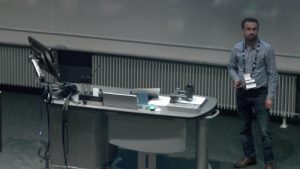
The HOWS team presented two papers at the 17th International Computing & Control for the Water Industry Conference at the University of Exeter, UK.
Herman Mahmoud presented a paper entitled Generalising Human Heuristics in Augmented Evolutionary Water Distribution Network Design Optimisation. The paper proposes a methodology for capturing and generalizing engineering expertise from humans through machine learning techniques and integrating the resultant heuristics into an evolutionary algorithm to find optimal water distribution network designs.
The second paper entitled A Diameter Probability Distribution Genetic Algorithm for Least-cost Water Distribution Network Design was presented by Matt Johns. The paper describes a new search space reduction technique which uses data gained from previous evolutionary algorithm runs to improve the performance of an algorithm on larger, more complex water distribution network design problems.
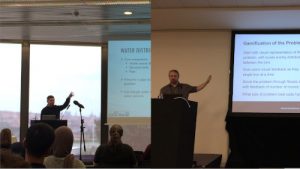
This July the HOWS team presented two papers at the Genetic and Evolutionary Computation Conference (GECCO 2019) in Prague, Czech Republic.
Matt Johns presented a paper entitled Augmented Evolutionary Intelligence: Combining Human and Evolutionary Design for Water Distribution Network Optimisation in the Real-World Applications track. The paper describes recent work conducted on the HOWS project which combines user interaction, machine learning and evolutionary algorithms to improve the way water distribution network optimisation is conducted.
Nick Ross presented a paper entitled Human-Evolutionary Problem Solving through Gamification of a Bin-Packing Problem at the Interactive Methods workshop (iGECCO 2019). The paper explores the use of gamification as a mechanism to extract problem-solving behaviour from human subjects through interaction with a gamified version of the bin-packing problem, with heuristics extracted by machine learning. These heuristics are used to augment an evolutionary algorithm to improve search performance.


Congratulations to the HOWS project team who have had their work accepted for CCWI 2019 (https://www.ccwi-2019.com/) later this year. The conference, that brings together researchers and practitioners in the water industry, will be held at the University of Exeter in September 2019 and the team will present two papers relating to the HOWS project:
A Diameter Probability Distribution Genetic Algorithm for Least-cost Water Distribution Network Design
and
Generalising Human Heuristics In Augmented Evolutionary Water Distribution Network Design Optimization
See you there!
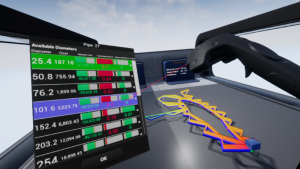
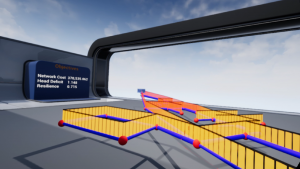
Researchers from the HOWS project showcased the Augmented Evolutionary Intelligence system yesterday at an event at Exeter University discussing the latest research and industry innovation in Digital Twins. The system combines virtual reality, machine learning and evolutionary computation to leverage the power of human intuition and AI working together to solve engineering problems.
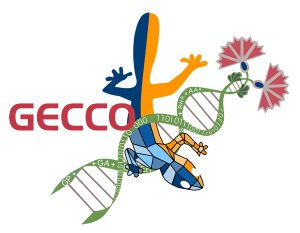
We are pleased to announced that our paper entitled Human-Evolutionary Problem Solving through Gamification of a Bin-Packing Problem has been accepted to the iGECCO Workshop at the Genetic and Evolutionary Computation Conference (GECCO 2019) in Prague, Czech Republic in July 2019. The paper describes recent work on human-AI interaction through a game interface to optimise the well known operations research problem of bin-packing.

We are pleased to announced that our paper entitled Augmented Evolutionary Intelligence: Combining Human and Evolutionary Design for Water Distribution Network Optimisation has been accepted to the Genetic and Evolutionary Computation Conference (GECCO 2019) in Prague, Czech Republic in July 2019. The paper describes recent work on the HOWS project combining user interaction, machine learning and evolutionary algorithms to improve the way that water network optimisation is conducted.
HOWS is a three-year EPSRC-funded project run by the University of Exeter’s Centre for Water Systems, which will investigate interactive methods for designing and managing water systems, incorporating visual analytics, heuristic optimisation and machine learning methods.
The overall aim of the HOWS project is to develop a new approach for designing and managing improved, near-optimal and engineering-intuitive water systems by incorporating visual analytics, heuristic optimisation and feedback-informed learning.
It is widely acknowledged that the water and wastewater infrastructure assets, which communities rely upon for health, economy and environmental sustainability, are severely underfunded on a global scale. For example, a funding gap of nearly $55 billion has been identified by the US EPA (ASCE, 2011). In England and Wales, the total estimated capital value of water utility assets is £254.8 billion (Ofwat, 2015), but between 2010 and 2015 only £12.9 billion was allocated for maintaining and replacing assets. Combined with the drive to reduce customers’ bills, there will be even more pressure on water companies to find ways to bridge the gap between the available and required finances. As a result of this it is not surprising that optimisation methods have been extensively researched and applied in this area (Maier et al., 2014).
The inability of those methods to include into optimisation ‘unquantifiable’ or difficult to quantify, yet important considerations, such as user subjective domain knowledge, has contributed to the limited adoption of optimisation in the water industry. Many cognitive and computational challenges accompany the design, planning and management involving complex engineered systems. Water industry infrastructure assets (i.e., water distribution and wastewater networks) are examples of systems that pose severe difficulties to completely automated optimisation methods due to their size, conceptual and computational complexity, non-linear behaviour and often discrete/combinatorial nature. These difficulties have first been articulated by Goulter (1992), who primarily attributed the lack of application of optimisation in water distribution network (WDN) design to the absence of suitable professional software. Although such software is now widely available (e.g., InfoWorks, WaterGems, EPANET, etc.), the lack of user under-standing of capabilities, assumptions and limitations still restricts the use of optimisation by practicing engineers (Walski, 2001).
Automatic methods that require a purely quantitative mathematical representation do not leverage human expertise and can only find solutions that are optimal with regard to an invariably over-simplified problem formulation. The focus of the past research in this area has almost exclusively been on algorithmic issues. However, this approach neglects many important human-computer interaction issues that must be addressed to provide practitioners with engineering-intuitive, practical solutions to optimisation problems. This project will develop new understanding of how engineering design, planning and management of complex water systems can be improved by creating a visual analytics optimisation approach that will integrate human expertise (through ‘human in the loop’ interactive optimisation), IT infrastructure (cloud/parallel computing) and state-of-the-art optimisation techniques to develop highly optimal, engineering intuitive solutions for the water industry.
The new approach will be extensively tested on problems provided by the UK water industry and will involve practicing engineers and experts in this important problem domain.